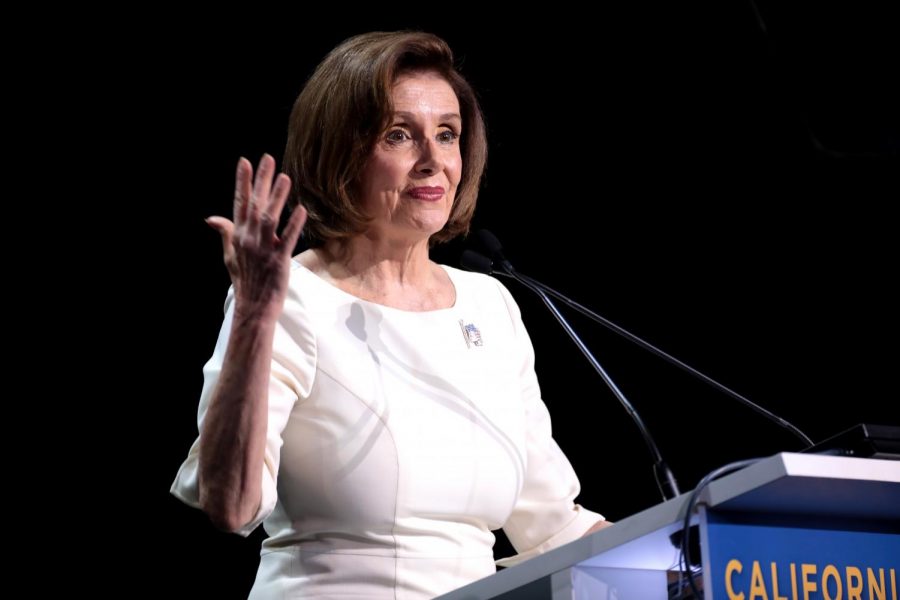House Withholds Impeachment Articles, Senate Prepares for Trial
Gage Skidmore on Creative Commons
Speaker of the House Nancy Pelosi speaks at the 2019 California Democratic Party State Convention. Creative Commons photo: Gage Skidmore on Creative Commons.
January 13, 2020
After the House of Representatives voted to impeach President Donald Trump on Dec. 18, 2019, impeachment proceedings have slowed down considerably due to a two-week congressional recess in late December. But with the new year, Congress is back in session, and impeachment now lies in the Senate’s hands.
Well, not quite. Speaker of the House Nancy Pelosi still has not sent the two formal impeachment articles to the Senate, which would trigger the start of a trial, though “that will probably be soon,” she said at her Jan. 9 weekly news conference.
Pelosi cited the delay as necessary until the Senate lays out the rules for a fair trial. With the groundwork laid out, Pelosi would hire prosecutors, or impeachment managers, to represent the House as she sees fit.
“No, we’re not going to do that,” said Senate Majority Leader Mitch McConnell in response.
Pelosi’s withholding of the impeachment articles also allows for new information to surface, such as a Jan. 6 statement from John Bolton, Trump’s former national security advisor, who declared that he would be willing to testify in the Senate trial if subpoenaed. Witnesses in the impeachment hearings
McConnell is pushing for a short trial, refusing to call any witnesses or obtain new evidence. “Everything I do during this, I’m coordinating with the White House counsel,” he said in a Dec. 12, 2019 Fox News interview. “There will be no difference between the president’s position and our position as to how to handle this.”
McConnell’s current trial plan is similar to former President Bill Clinton’s in 1999, where House representatives and the president would make opening statements, followed by senators’ questioning. Voting on witness appearances, like Bolton’s, would occur after.
Senate Democrats disagree with the Republican plan, calling for new witnesses and new documents. They are expected to vote unanimously against McConnell.
Impeachment has become even more muddled in light of the United States’ assassination of Iranian General Qassim Suleimani on Jan. 3, an abrupt and controversial decision made by Trump without congressional briefing.
In the coming weeks, Congress must wrestle with two of its most important constitutional powers: impeachment and war.













